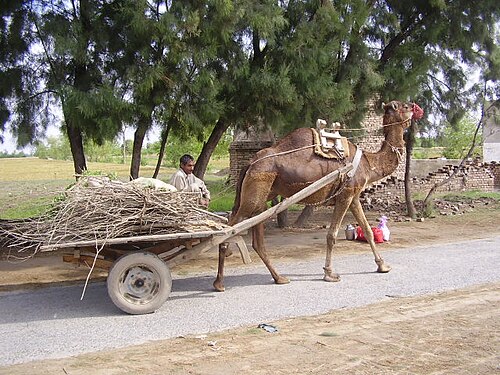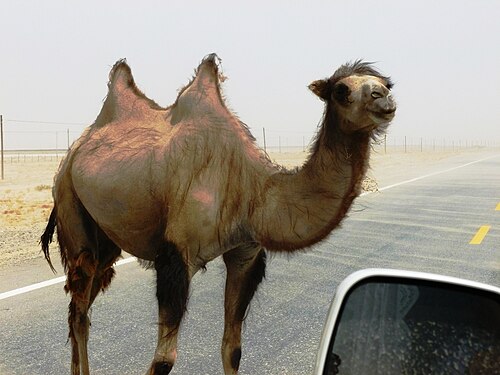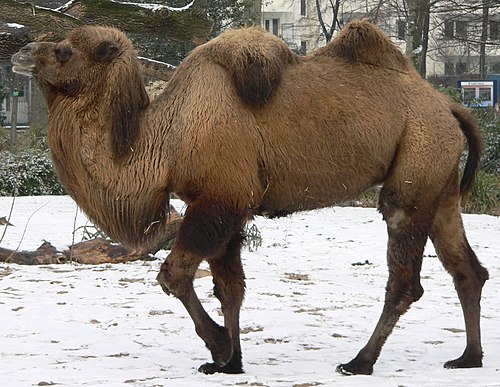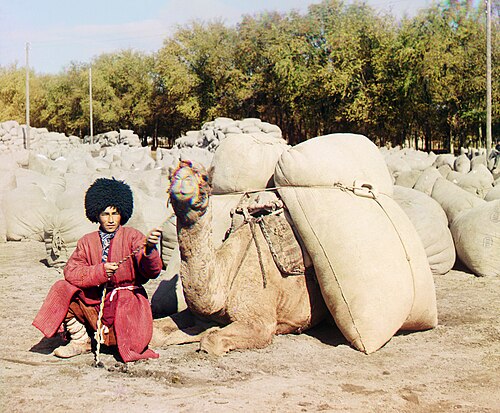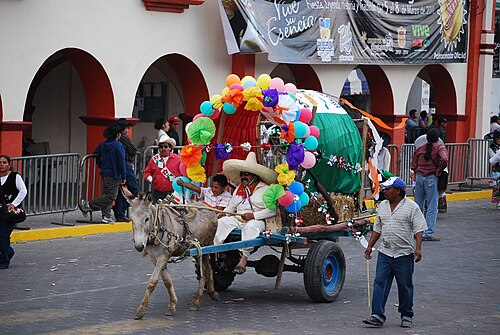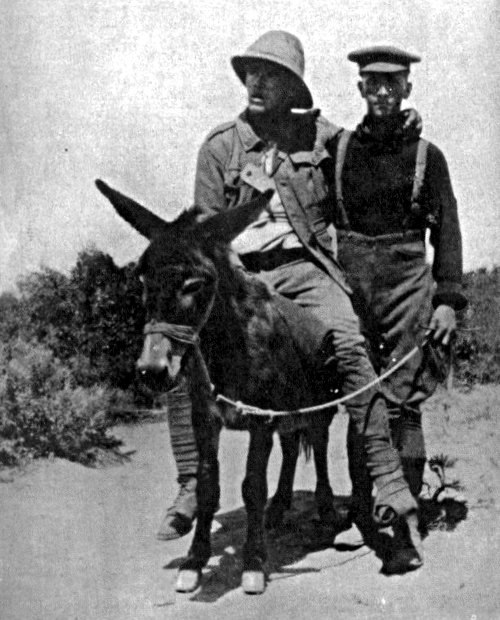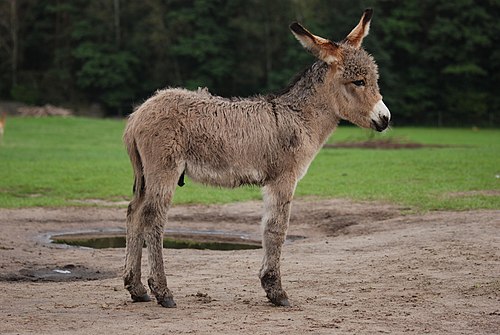Cameladjective
Of a light brown color like that of a camel.
Camelnoun
A large ruminant used in Asia and Africa for carrying burdens and for riding. The camel is remarkable for its ability to go a long time without drinking. Its hoofs are small, and situated at the extremities of the toes, and the weight of the animal rests on the callous. The dromedary (Camelus dromedarius) has one bunch on the back, while the Bactrian camel (Camelus Bactrianus) has two. The llama, alpaca, and vicuña, of South America, belong to a related genus (Auchenia).
Camelnoun
A water-tight structure (as a large box or boxes) used to assist a vessel in passing over a shoal or bar or in navigating shallow water. By admitting water, the camel or camels may be sunk and attached beneath or at the sides of a vessel, and when the water is pumped out the vessel is lifted.
Camelnoun
cud-chewing mammal used as a draft or saddle animal in desert regions
Camel
A camel is an even-toed ungulate in the genus Camelus that bears distinctive fatty deposits known as on its back. Camels have long been domesticated and, as livestock, they provide food (milk and meat) and textiles (fiber and felt from hair).
Donkeynoun
a domestic animal, Equus asinus asinus, similar to a horse
Donkeynoun
a stubborn person
Donkeynoun
a fool
Donkeynoun
(nautical) a small auxiliary engine, also called donkey engine
Donkeynoun
(poker slang) a bad poker player
Donkeynoun
An ass; or (less frequently) a mule.
Donkeynoun
A stupid or obstinate fellow; an ass.
Donkeynoun
the symbol of the Democratic Party; introduced in cartoons by Thomas Nast in 1874
Donkeynoun
domestic beast of burden descended from the African wild ass; patient but stubborn
Donkey
The donkey or ass (Equus africanus asinus) is a domesticated member of the horse family, Equidae. The wild ancestor of the donkey is the African wild ass, E. africanus.









